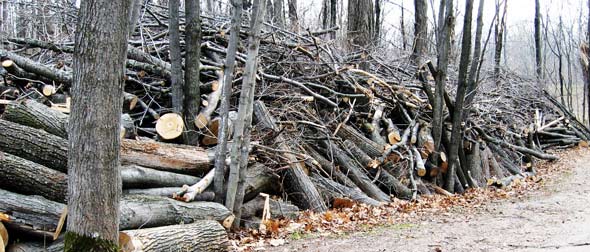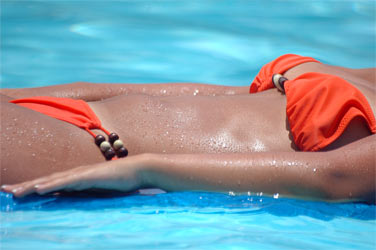How to make medical school seem easier
Q: I know that medical school will be hard. Do you have any tips for making it seem more tolerable?

Answer by Kevin Pezzi, MD: Yes. First, in my books and web sites (this one and www.ERbook.net), I give various tips for augmenting academic performance, both short-term and long-term.
Second, here is a tip for making it seem more tolerable: prepare for it by doing tasks that are very difficult and require protracted effort. It is important to realize that there is no absolute standard of difficulty. Your perception of difficulty is gauged by a reflexive internal comparison of how hard the task is relative to other tasks that you've previously done. If you grew up as a spoiled rich kid who never had to lift a finger, cleaning your home might seem hard. However, if an Egyptian slave accustomed to building pyramids without power tools were whisked into the 21st century and told to build a house, he would undoubtedly marvel at how easy it was from a physical standpoint.
Modernization has made life so much easier than it once was that most of us have no idea of what it is like to do hard work. Result? We recoil from things that are "too hard," even though those tasks would not have fazed our ancestors. Here is an example. I called various men who placed newspaper ads looking for work cleaning up brush. I described the job to them on the phone, and only one showed up to give an estimate. When he did, I never received that estimate. Instead, I witnessed one of history's longest expressions of stunned amazement as he repeatedly uttered "Oh my God" over the course of 20 minutes as I pointed out just one of the areas that needed brush removal. I live in wooded northern Michigan, so the contractors who advertise for brush cleanup should be able to deal with large jobs (and they should have the equipment to make such jobs much easier). I cheerily pointed out to him that, "Yes, it's a big job, but look at the bright side: it is more work—and thus more money—for you." He didn't seem tempted by that. He mumbled "Oh my God" several more times, and then left.
Frustrated by my inability to get anyone to do the work, I did it myself. I cleared a trail a half-mile long to reach a spot on the back of my land where I could make a brush pile. Next, I picked up every piece of brush (weighing from an ounce to hundreds of pounds), placed it on a trailer, hauled it to the brush pile, yanked it off the trailer (branches have a nasty tendency to become entangled once they are bundled), and then tossed the brush onto the pile.

Here is a picture of one of the brush piles I made. This one is over 140 feet long and up to 16 feet tall. Had I placed all the brush I moved in that spot, it would have been about 400 feet long.
Moving several hundred tons of brush is hard work, but doing that (or something comparable) gives you a priceless benefit: a more accurate internal yardstick to judge what is hard, and what is not. In comparison, studying neuroanatomy seems like a breeze. Parenthetically, I think that unfamiliarity with hard work is one factor behind today's obesity epidemic. I've exercised in many different ways, but nothing is nearly as arduous as moving a mountain of brush and logs. Most people do not exercise, and the ones who do often overestimate the intensity and duration of their workouts. A few minutes on the StairMaster or a half-hour spent lifting wimpy little weights is exercise? Ha! (For a culture that is obsessed with appearance yet reluctant to diet and exercise enough to have a great body, I have a solution: a book that I wrote entitled How to Lose Weight Without Dieting, Drugs, Herbs, Exercise, or Surgery.)
And now back to our regularly scheduled program . . . . I've heard waitresses opine that their job is the hardest one in the world, no doubt because they've done nothing more difficult. As an ER doctor, I had to memorize much more than the daily specials, I had to rush more, and I had a lot more on the line than receiving a reduced tip if I screwed up. I am amazed that anyone could think that it is harder to serve food to someone than to care for a department full of patients in an ER, some of whom are critically ill or injured. Placing a central IV line in someone, or doing a spinal tap, is unquestionably more challenging than carrying a frigging plate from the kitchen to the table. So it's not just wrong to say that waitressing is the most difficult job in the world; it is ludicrous to even think that. But remember that perception of difficulty is all relative to one's prior experiences. The best way to make future events more tolerable is to precede them with something that requires Herculean effort. Thereafter, the merely hard stuff will seem comparatively easy.
Back to the main Question & Answer page
Notes:
- LinkedIn's Connie Chan Wang: Why You Need a Horrible Job

